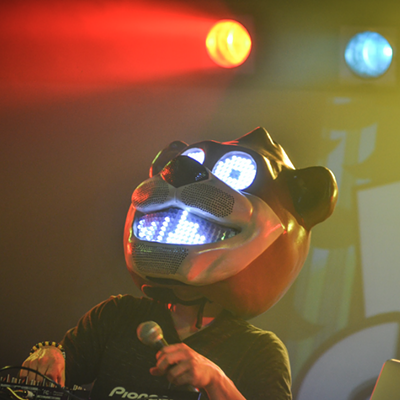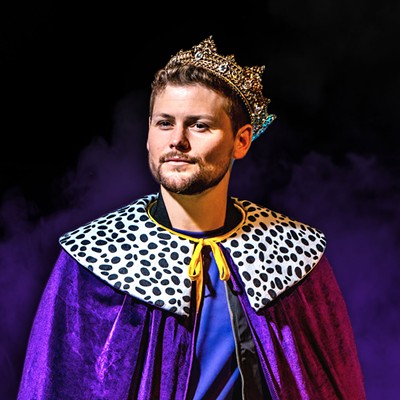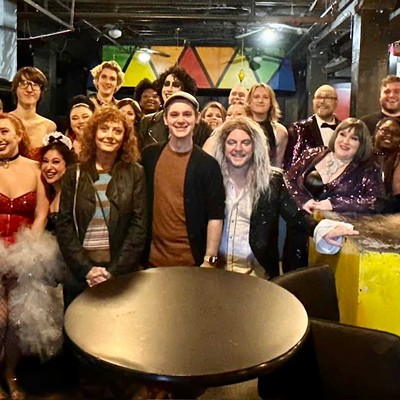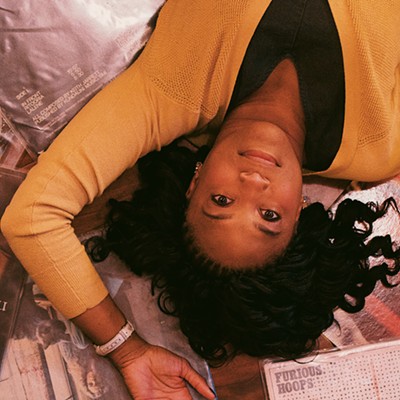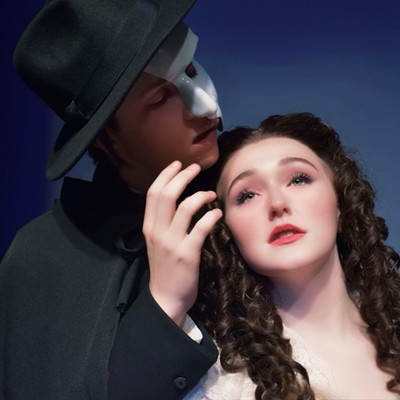More than virtually any other work of theatre in this young millennium, Angels in America has become a real cultural presence.
From Broadway to HBO, from Streep to Pacino, Tony Kushner’s two–part work examining relationships in the age of AIDS has become not only an important work for gay Americans, but a magnet for artists and audience members who appreciate heartfelt art and showmanship.
This week The Collective Face opens its performance of the first part of Angels in America: A Gay Fantasia on National Themes, set in New York in 1985, the onset of the epidemic.
“This is the play that changes people’s lives,” says director and designer David I.L. Poole, who also teaches theatre at Savannah State University.
“It’s so interesting how this play is really a point of conversation. My students, some of whom have never read a play in their lives, were going up and down the hallways talking about this play. That’s why it’s one of the great plays of the 21st century.”
This first part of Angels, titled Millennium Approaches, deals with the breakup of a gay couple after one partner gets AIDS. It’s set against the backdrop of the machinations of a closeted gay conservative lawyer who also gets the sickness, Roy Cohn — patterned of course on the historical figure of the same name.
A highly theatrical work fusing, as its title indicates, elements of fantasy with elements of gritty reality, Angels in America is an ambitious undertaking even for a large market professional company, but even more daunting for community theatre.
But Poole says it may be a work he was born to direct.
“Ever since my undergraduate days, critics have said of my work that someday I would direct this play. They’ve said that Kushner’s writing and my stylization would work perfectly together. So it’s not really that farfetched an idea that we would do that here.”
Poole says there was never a doubt that Collective Face would do a full–on, faithful reproduction of the demanding script.
“We knew there would be difficulties, that there were these magic realism elements,” says Poole. “Ghosts appear, there are costuming changes every five seconds, there’s an angel crashing through ceiling! We are doing all of that — we are not backing out on any of it.”
The only notable change for this show is increasing Kushner’s recommended number of cast members.
“It’s built for eight actors but we have increased that to 12, which does make things a little simpler,” says Poole. “Those quick changes don’t always have to happen.”
(The cast comprises Jonathan Able, Richie Cook, Matt O’Boyle, Maggie Lee Hart, Bill DeYoung, Lynne Jones, Carl Andre Dominique, JinHi Soucy Rand, Charlie Ribbens, Alexis Mundy and Shane Gray.)
While any play containing the words “Gay Fantasia” somewhere in its title will necessarily deal with the lives of gay people, Poole stresses that the entire point of the play – indeed, of all true art – is to find the universality within the work’s central theme.
“Politically Kushner talks about the AIDS crisis, but really the play isn’t so much about that as it’s about relationships of these people. It’s a very humanistic approach,” says Poole.
“This play is important in that it portrays homosexuality as a normal thing, not a freak show.”
Poole considers Millennium Approaches – which won a Pulitzer Prize – to be a stronger work than Part Two, which is called Perestroika.
“Part One has a nice ending, but it’s not a complete cyclical ending,” he says. “It’s not the button ending where everything is resolved, but you know what? That’s life, isn’t it?”
Poole says a prime motivation has been not to regard Angels as “the gay play or the AIDS play. This is not what we should do as actors. We should play these people’s lives.”
“It’s a great master class in acting,” he concludes. “We’re thrown this text and we have to make it come alive. I’ve told everyone, let’s not get daunted by the aura of who’s played these roles and let’s make it our play. Let’s find our play.”
Angels in America, a Gay Fantasia on National Themes, Part One: Millennium Approaches
When: Sept. 16–17, 22–24, and Sept. 29–October 2. All shows 7:30 p.m.; talkback sessions with cast after Thursday shows.
Where: Muse Arts Warehouse, 703D Louisville Road
Cost: Opening weekend $15/$10 students. Other performances: $20/$15
Info: 912/713–1137 or [email protected].





